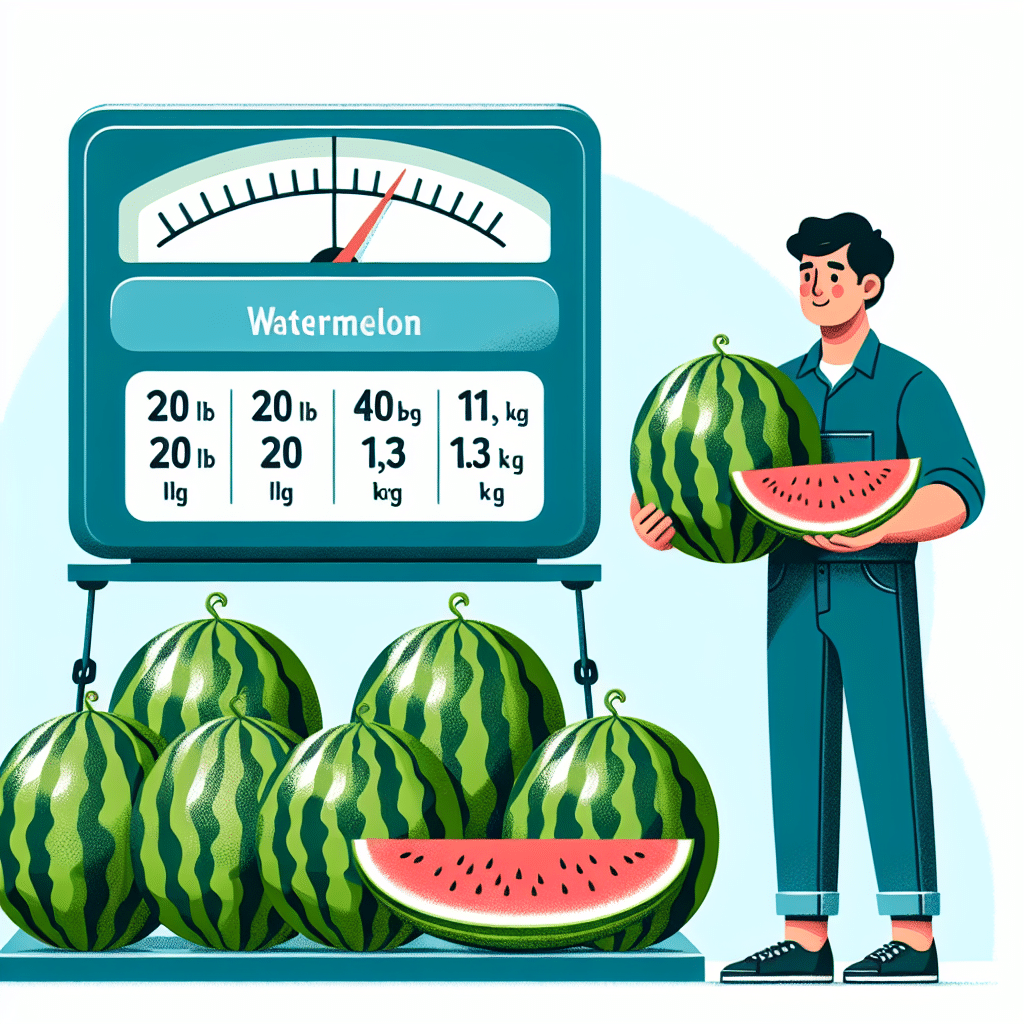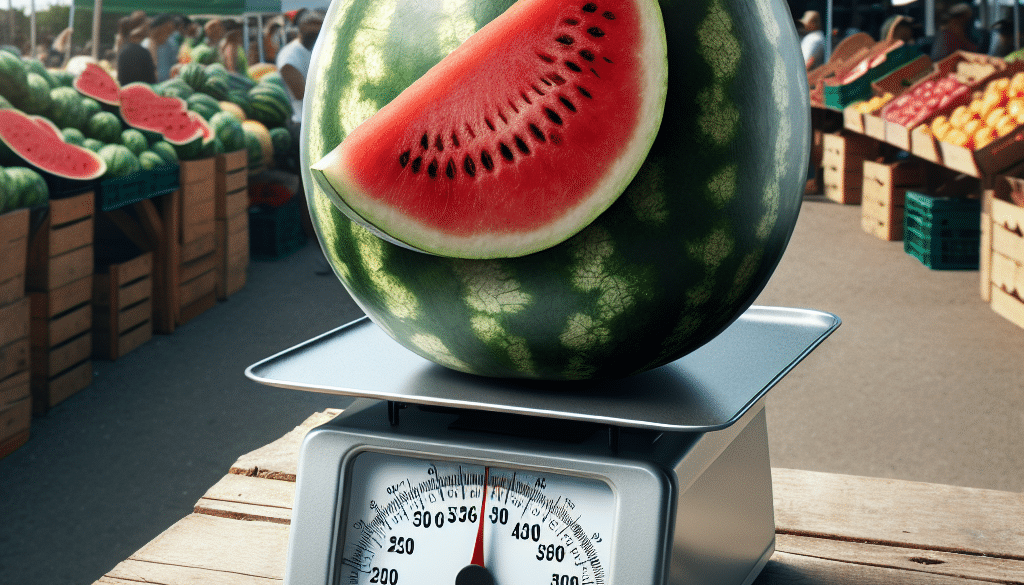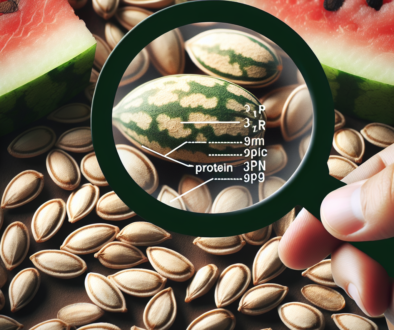Average Weight of Watermelon: What to Expect
-
Table of Contents
- Average Weight of Watermelon: Key Factors and Expectations
- Understanding Watermelon Varieties and Their Weights
- Factors Influencing Watermelon Weight
- What to Expect: Average Weights by Category
- Case Studies and Statistics: Real-World Examples
- Why Watermelon Weight Matters
- Conclusion: The Weighty Decision of Choosing Watermelons
- Enhance Your Health with ETprotein’s Watermelon Seed Protein
Average Weight of Watermelon: Key Factors and Expectations

Watermelons are a staple of summer picnics and barbecues, known for their refreshing taste and hydrating properties. But when it comes to purchasing or growing watermelons, one common question arises: What is the average weight of a watermelon? Understanding the average weight can help consumers and growers alike make informed decisions. In this article, we’ll explore the factors that influence watermelon weight, the range of weights you can expect, and why it matters.
Understanding Watermelon Varieties and Their Weights
Watermelons come in various shapes, sizes, and types, each with its own average weight. The most common types of watermelons include seeded, seedless, mini, and yellow/orange fleshed varieties. Seeded watermelons typically weigh between 15 to 45 pounds (6.8 to 20.4 kilograms), while seedless varieties usually range from 10 to 20 pounds (4.5 to 9.1 kilograms). Mini or personal watermelons are smaller, averaging 1 to 7 pounds (0.45 to 3.2 kilograms), and the yellow/orange varieties can vary widely in weight, similar to their red-fleshed counterparts.
Factors Influencing Watermelon Weight
Several factors can affect the weight of a watermelon, including:
- Genetics: The genetic makeup of the watermelon variety plays a crucial role in determining its potential size and weight.
- Agricultural Practices: Factors such as planting density, irrigation, fertilization, and pest control can influence the growth and final weight of the fruit.
- Climate and Weather: Watermelons require warm temperatures and plenty of sunshine to develop fully. Extreme weather conditions can stunt growth or cause the fruit to develop irregularly.
- Soil Conditions: Well-drained, nutrient-rich soil is ideal for watermelon cultivation. Poor soil conditions can limit the size and weight of the fruit.
What to Expect: Average Weights by Category
When selecting a watermelon, it’s helpful to have a general idea of the average weight you can expect based on the category:
- Seeded Watermelons: These traditional watermelons are the largest, with an average weight of 15 to 45 pounds.
- Seedless Watermelons: Developed for convenience, seedless watermelons are generally lighter, averaging 10 to 20 pounds.
- Mini Watermelons: Perfect for small households or as a single serving, mini watermelons weigh between 1 to 7 pounds.
- Yellow/Orange Fleshed Watermelons: These can vary greatly in weight but typically fall within the range of seeded or seedless red-fleshed varieties.
Case Studies and Statistics: Real-World Examples
Research and agricultural records provide insight into the average weights of watermelons. For instance, the Carolina Cross variety, known for producing large fruits, has been recorded to produce watermelons weighing over 200 pounds (90.7 kilograms), setting world records. On the other hand, statistical data from commercial farms show that the average weight for seedless watermelons sold in supermarkets is approximately 15 pounds (6.8 kilograms).
Case studies from different regions also highlight the impact of local growing conditions on watermelon weight. In areas with optimal growing conditions, such as parts of Georgia and Florida in the United States, watermelons tend to reach their maximum potential weight. Conversely, in regions with less than ideal conditions, the average weight may be lower.
Why Watermelon Weight Matters
The weight of a watermelon is not just a matter of curiosity; it has practical implications:
- For Consumers: Knowing the average weight can help when planning meals or events, ensuring there’s enough watermelon to go around.
- For Growers: Understanding weight expectations can guide cultivation practices and help predict yields and profits.
- For Retailers: Stocking watermelons with a consistent weight range can meet customer expectations and reduce waste.
Conclusion: The Weighty Decision of Choosing Watermelons
In conclusion, the average weight of a watermelon can vary significantly based on the type, growing conditions, and agricultural practices. Consumers should expect seeded watermelons to be the heaviest, followed by seedless, and then mini watermelons. Growers and retailers can use this information to optimize their offerings and meet market demands. Ultimately, whether you’re slicing up a watermelon for a family picnic or growing them for sale, understanding the factors that influence weight can enhance your watermelon experience.
Enhance Your Health with ETprotein’s Watermelon Seed Protein
If you’re interested in the health benefits of watermelons, consider exploring ETprotein’s watermelon seed protein products. Watermelon seeds are a great source of plant-based protein and can be an excellent addition to a healthy diet. ETprotein offers high-quality, organic bulk vegan protein derived from watermelon seeds, perfect for those looking to increase their protein intake with a natural, allergen-free option.
ETprotein’s watermelon seed protein is ideal for various industries, including nutraceuticals, pharmaceuticals, and food and beverage. With a neutral taste and non-GMO certification, it’s a versatile ingredient that can be incorporated into a wide range of products. Whether you’re a manufacturer, trader, or distributor, ETprotein can provide you with the protein solutions you need to meet your customers’ demands.
About ETprotein:
ETprotein, a reputable watermelon seed protein Chinese factory manufacturer and supplier, is renowned for producing, stocking, exporting, and delivering the highest quality organic bulk vegan protein and plant proteins. They include Organic rice protein, clear rice protein, pea protein, clear pea protein, watermelon seed protein, pumpkin seed protein, sunflower seed protein, mung bean protein, peanut protein etc. Their offerings, characterized by a neutral taste, non-GMO, allergen-free attributes, cater to a diverse range of industries. They serve nutraceutical, pharmaceutical, cosmeceutical, veterinary, as well as food and beverage finished product distributors, traders, and manufacturers across Europe, USA, Canada, Australia, Thailand, Japan, Korea, Brazil, and Chile, among others.
ETprotein specialization includes exporting and delivering tailor-made protein powder and finished nutritional supplements. Their extensive product range covers sectors like Food and Beverage, Sports Nutrition, Weight Management, Dietary Supplements, Health and Wellness Products, and Infant Formula, ensuring comprehensive solutions to meet all your protein needs.
As a trusted company by leading global food and beverage brands and Fortune 500 companies, ETprotein reinforces China’s reputation in the global arena. For more information or to sample their products, please contact them and email sales(at)ETprotein.com today.












